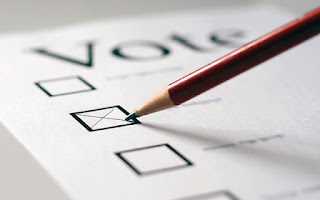Africa In The Dark
A few years ago, I read one of Chimamanda Adichie Ngozi's works and there was a part where the characters were complaining about being without power for 12 hours. It's a fictional story set in Nigeria but my mind just could not even comprehend the possibility of a country going for so long without power, it just didn't make sense how those entrusted with power could run the country into the ground like that.
Fast forward to September 2022, more than 15 years after loadshedding was first introduced in South Africa and guess what? We, too, go for so long without power. France and the US are also expected to take the load loadshedding & reduction route too.
Eskom defines loadshedding as planned [electricity] supply interruptions which take place when the demand [for electricity] exceeds the available supply. But what does the law say about the planned darkness we're subjected to?
The Constitution does not explicitly provide for the right to electricity but as common sense would dictate, a lot of socio-economic rights contained in the Bill of Rights i.e. the right to housing are dependent on or complemented by the supply of electricity. According to sections 152 and 153, municipalities are obligated to stive to provide basic municipal services to communities within available resources and in a sustainable manner.
This is also where the Limitation Clause, section 36 of the Constitution comes in, it is crucial because it ensures the smooth running of the state. Yes, there are non-derogable rights such as the right to life and the right to human dignity but there also exists rights that can, with justification, be limited. S36(1) reads "the rights in the Bill of Rights may be limited only in terms of law of general application to the extent that the limitation is reasonable and justifiable in an open and democratic society based on human dignity, equality and freedom, taking into account all relevant factors..."
Although the Constitution does not guarantee you and I 'the right to electricity', the Electricity Regulation Act 4 of 2006 seeks to "achieve the eficient, effective, sustainable and orderly development and operation of electricity supply infrastructure in South Africa" and "facilitate universal access to electricity".
The courts may interpret the implementation of loadshedding as both lawful and reasonable considering the limited resources currently at our disposal but it is also true that ordinary citizens' rights which are enshrined in the Bill of Rights get infringed upon during these power blackouts.
Millions of people's lives are at risk every time it is implemented especially during crucial slots such as the 19h00 to 23h00 one when millions of people staying in townships and deep in the villages are rushing home where police visibility is oftentimes a myth which opens a window for crime Olympics with criminals showcasing their skills.
This is not the only manner in which loadshedding impacts the lives of ordinary citizens, small businesses suffer the most as they struggle to pick up the pieces post-Covid which we can interpret as a direct infringement of the right to freedom of trade, occupation and profession and ultimately, the right to dignity.
In a recent interview with Newzroom Afrika, Charlotte Maxeke Johannesburg Academic Hospital's Head Of Internal Medicine Professor Adam Mahomed highlighted how loadshedding puts hospitals under strain as emergency surgeries often have to be postponed and medical equipments were getting damaged which directly puts the lives of patients at risk. This has led to the hospital launching a petition calling for all hospitals to be exempted from loadshedding.
We're in the 4th Industrial Revolution people, there isn't much of a quality life we can have without power but unfortunately, as the courts say, the right to electricity (?) is not absolute, it also really truly exists when there are sufficient resources available to provide electricity.


Comments
Post a Comment